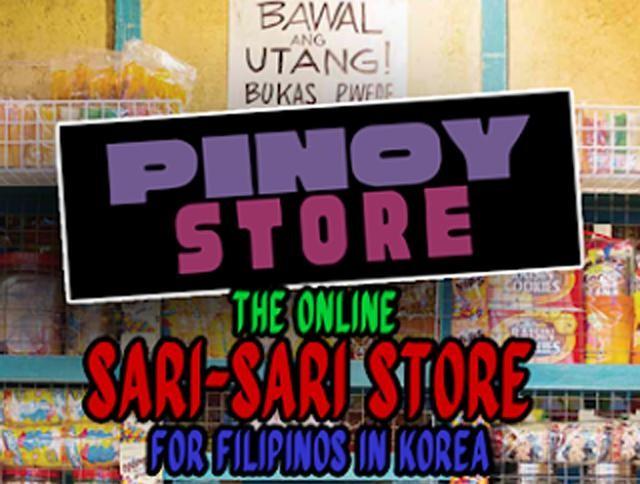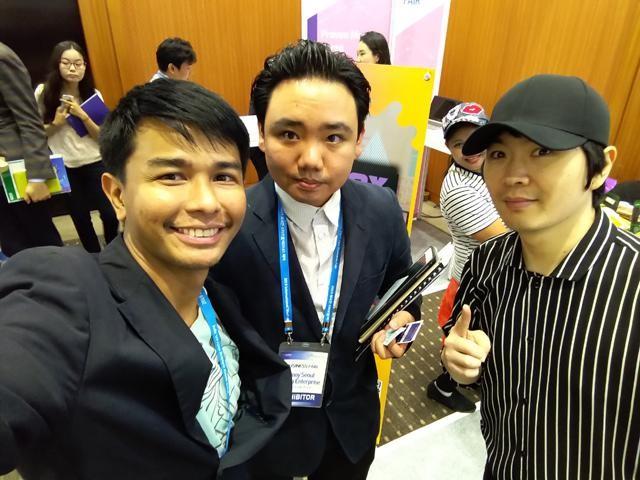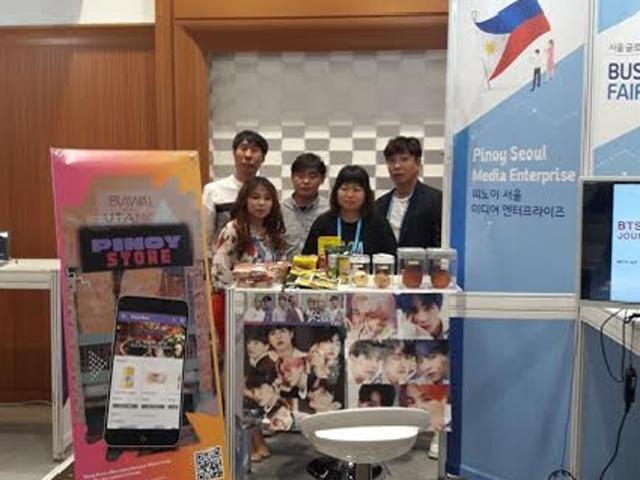Pinoy in South Korea opens online 'sari-sari' store
A Filipino filmmaker has started an online “sari-sari” store for Filipinos in Korea for their convenience in finding Pinoy products.

Photos courtesy by Nash Ang
“For overseas Filipinos, it’s a very big thing to be able to find Filipino products and services. ‘Pinoy Store’ offers more than just Filipino food. It offers the comfort of the Philippines with just few clicks in your smartphone,” Nash Ang, 30, a graduate of broadcasting at the Polytechnic University of the Philippines, told GMA News Online in an online interview last May 29.
Also, Nash said he organizes online communities as a hobby.


“If this e-commerce initiative in Korea becomes a hit, we will extend Pinoy Store to provide equal access to Filipinos in Japan and the United States,” Nash, who was hailed best director during the 13th Pyongyang International Film Festival, added.
“Pinoy Store” is just a part of a bigger picture, though.
"Basically, the service is an extension of ‘Pinoy Seoul,’” said Ang, referring to the media portal he founded for Filipinos living in South Korea, while he was working as an international correspondent of Seoul in 2017.
“Pinoy Seoul,” meanwhile, is part of an initiative of OBRA Incorporated, a non-profit organization Ang founded in 2007.
“OBRA Incorporated started with a vision to promote Philippine culture and arts among overseas Filipinos. It made online communities such as DancePinoy.com, an online community for Filipino dancers.
"Not only online stuff, OBRA Incorporated had been very much involved in reaching out [to] remote communities in the Philippines through arts even before its inception in year 2007. PinoySeoul.com is an offspring, carrying its vision focusing on Filipinos in Korea. OBRA continues hold this this idea, as a matter of fact, we just launched PinoyCalifornia.com that aims to shape Filipino communities in the United States as one,” he added.
Prices of items “Pinoy Store” offers are comparable to the products for sale inside Korea but are reasonably more expensive than the prices of the items in the Philippines.
“Export process, server expenses and delivery fees plays a big part of the price. We just started ‘Pinoy Store’ and still experimenting ways on how to improve the service. [But] my team and I will work hard to provide better ways to deliver Filipino products to our hardworking migrant workers in Korea,” he said. —LBG, GMA News




